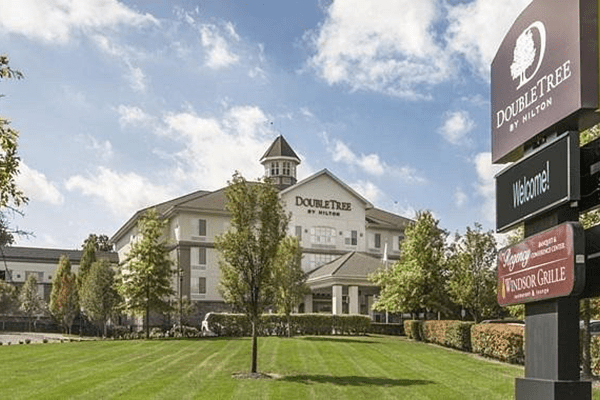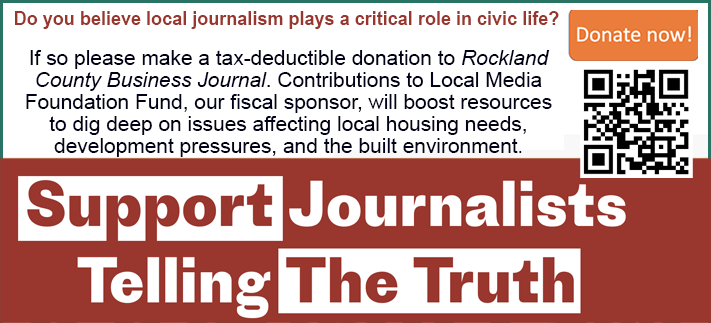|
RCBJ-Audible (Listen For Free)
|
Industry Experts & Local Hoteliers Say Added Tax Could Make Clarkstown Hotels Less Competitive
By Tina Traster
Tourists and business travelers booking hotel rooms in Clarkstown could soon see an extra tax on the bill. The Town Board last week voted unanimously to move ahead with the steps needed to impose a hotel/motel tax.
The town voted to make a request to both Assemblyman Kenneth Zebrowski and Senator Bill Weber to sponsor legislation, which is needed to levy such a tax. The legislation calls for a 4 percent room tax on hotels and motels, though it does not specify whether the tax will be used to support tourism to the town or whether the money would be used to plug unfilled budget gaps.
Supervisor George Hoehmann’s only comment at the town board meeting was that such a tax could bring in “several hundred thousand to several million” dollars from the town’s handful of hotels and motels that together add up to about 600 rooms.
Several calls and emails sent to Clarkstown’s communication director Erika Moschetti seeking clarification about the target for the proposed hotel/motel tax went unanswered.
On December 13, Assemblyman Zebrowski sponsored Bill A8391, amending the state tax law to allow the Town of Clarkstown to levy a 4 percent hotel or motel tax.
“We are concerned about this,” said Jeff Weinberger, manager at Double Tree by Hilton in Nanuet, the town’s largest hotel. “An additional tax will make us less competitive with adjacent towns. Hotel rooms are a commodity. People shop for prices. This could be an issue.”
Mark Dorr, President of New York State Hospitality and Tourism Association, said these taxes, when you combine state, county, and town, can add up – sometimes to more than 20 percent on top of the room rate. In this case, the state, county, and town tax adds up to nearly 16 percent on top of the room rate.
“What we’ve found is that when people are booking a room for the first time, they might not notice the taxes until it’s time to pay the bill,” said Dorr. “But when they do look at the bill and see such high taxes, it leaves them with a bad taste, and when they go to book a second time, they will look to go to a less-taxed area.”
Further, tourists who book hotels in neighboring towns or counties may be more likely to shop, eat or use the services elsewhere, he said.
Clarkstown’s main hotels include the Double Tree by Hilton, The Element, Days Inn by Wyndham, the Hampton Inn Hotel, the Quality Inn and the Hilton Garden Nanuet – all located along the Route 59 corridor.
None of Rockland County’s five towns currently has a hotel/motel occupancy tax.
In 2012, Rockland County passed a 3 percent hotel/motel occupancy tax. In Jan. 2023, the Village of Nyack imposed a 3 percent room occupancy tax. Nyack has two hotels and one motel, adding up to about 250 rooms.
Rockland County has said the revenues collected go into the general fund, and according to the 2024 budget, the county expects to collect $1.4 million in occupancy tax. The Village of Nyack has said half of the taxes levied are going to the village’s general fund, while the other half will be used to issue grants to entities and nonprofits that help promote tourism. Grants will be awarded in 2024.
Dorr said a hotel/motel occupancy tax is more justifiable if the town invests the revenue into tourism and promotion.
“It’s one thing if the tax is used to build a special project or boost tourism,” said Dorr. “But it’s another thing if the tax is used to plug a poorly run budget.”
Weinberger also pointed out that it’s not only people from outside the county who come to stay at Clarkstown’s hotels. “Local people and their friends and families also stay at the hotel,” he said.
“This home rule request was just passed (on Tuesday) in Clarkstown,” said Matt Masterson, Senator Bill Weber’s Chief of Staff. “Once we officially receive the request, we will review it accordingly.”














